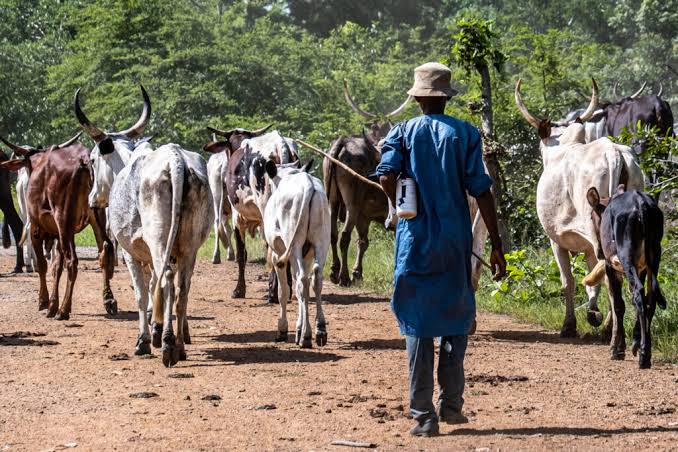By Babayola M. Toungo
The plight of the nomadic Fulbe reverberates quietly, almost inaudibly, beneath the cacophony of Nigeria’s national discourse. As existential threats encircle their communities, the silence of Fulbe elites echoes as loudly as any act of open betrayal. To remain mute in the face of injustice is not far removed from complicity – a cold, polite distance that offers tacit approval to those who traduce the voiceless.
But to grasp the full weight of this betrayal, one must look beyond the romanticized image of the wandering herder and recognize the Fulbe’s vocation for what it truly is: a business – dynamic, complex, and foundational to the agricultural economy. The nomadic Fulbe are not merely guardians of tradition; they are entrepreneurs, risk-takers, and economic actors whose labour and investment underpin food security and commerce across Nigeria. Their herds are capital; their migration patterns, a logistical strategy; their daily bargaining in markets, the pulse of rural enterprise.
Yet, like any other business, theirs is beset by uncertainty – only theirs is compounded by an intricate maze of disadvantage. For every merchant who leverages urban networks, every industrialist who courts government contracts, and every farmer who secures subsidies or insurance, there is a Pullo herder who faces the bureaucracy as a locked gate rather than an open door. Government assistance – ostensibly available to all businesses – remains, for the nomad, a mirage on the horizon. The forms are written in a language foreign to them; the offices are located in distant towns, staffed by officials whose suspicion is thinly veiled; the policies are drawn with lines that never cross their path.
Each government initiative – be it RUGA, ranching, L-PRESS, or the more recent Ministry of Livestock – has foundered on the shoals of hostility, indifference, or outright animus. These proposals, regardless of their stated intentions, seem fatally designed to fail, ensnared by a web of public resentment and political inertia. The nomadic Fulbe, lacking access to influence, lobbying power, or the machinery of state, are left adrift, unable to turn the wheels of bureaucracy in their favour while others more adept at power’s game see their grievances addressed.
There is a bitter irony that those of us with the privilege of urban residence, education, and proximity to media and power – those who might amplify the nomads’ cry – find ourselves, wittingly or unwittingly, becoming obstacles instead. We pontificate in studios, our faces washed in the sterile glare of klieg lights, making fine speeches about rights and justice. Yet, on the ground, little changes. The dispossessed herder is hounded from one state to another, invisible and unheard, bearing the weight of our collective inaction.
But let us interrogate the prevailing assumption: that the Fulbe are outliers, whose demands for protection or investment are somehow exceptional or burdensome. Is not their business as legitimate as the sprawling farms of the Middle Belt, the textile traders of Aba, or the oil magnates of the Delta? When drought or disease strikes, when banditry empties a kraal overnight, when borders close and grazing routes vanish – do the Fulbe not bleed the same losses, shoulder the same debts, and dream the same dreams of prosperity as any business owner? Their exclusion from assistance is not merely an oversight; it is an act of calculated neglect, rooted in prejudice and perpetuated by systemic bias.
Is this, then, the measure of our fairness – to ourselves, and more crucially, to the Fulbe nomad whose labour sustains our tables? The answer demands an uncomfortable reckoning. True justice is not measured by the eloquence of our advocacy when the cameras roll, but by the courage to stand as a shield when the vulnerable are besieged. It means refusing to be cogs in a machinery that grinds down the powerless for the comfort of the powerful.
It is time for the privileged Fulbe – indeed, for all who possess a voice and a platform – to break their silence. To listen, not only to the narratives shaped in urban echo chambers, but to the lived realities of those forced to move under threat, their dignity battered by policies that never reach the heart of their suffering. We must confront the systems that perpetuate exclusion and challenge the social and political brick walls built on prejudice and fear.
Empathy must be the cornerstone of any future solution: a genuine willingness to see, hear, and defend the rights of the nomadic Fulbe. Not as an act of charity, but as an acknowledgment of their full humanity and their indispensable contribution to the nation’s life. Anything less is a betrayal – quiet, polite, but devastatingly real.
To be fair, in the truest sense, is to become the advocate whose words ring with conviction and whose actions bear witness to justice, even when the world averts its gaze. The time for silence is over; history will judge not only the traducers, but also those who had the power to speak and chose – fatally – to remain silent.


